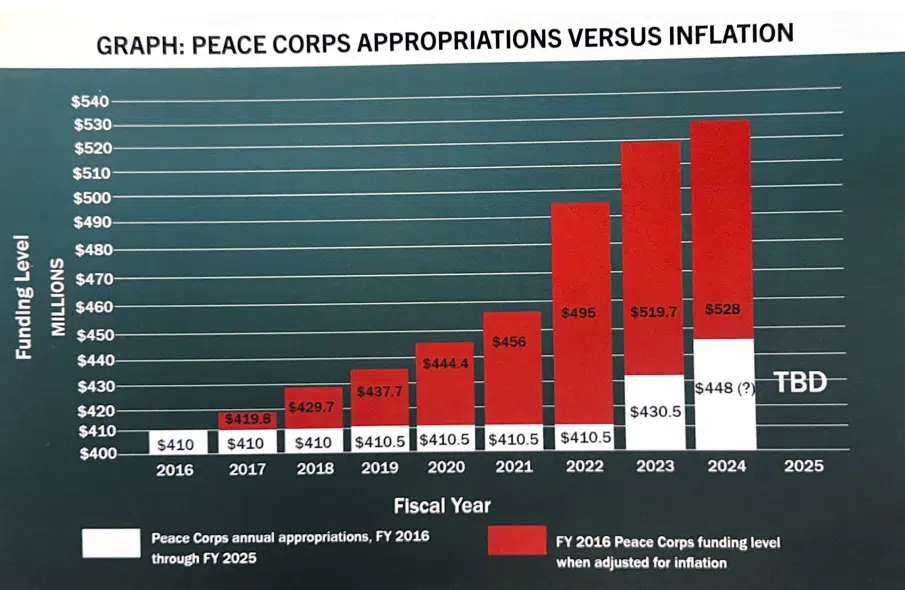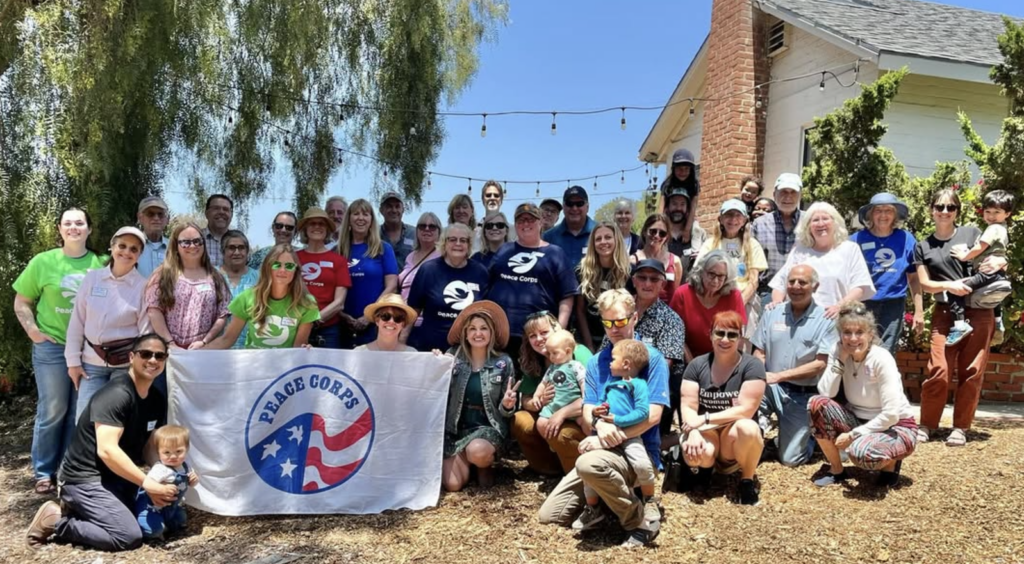After weeks of disruption and dismantling for many federal agencies and programs (including many international assistance programs), members of the Peace Corps community are legitimately concerned about what could happen to the agency.
We should know more about where the Peace Corps stands in the next several weeks, when it is expected that the Trump administration will deliver its Fiscal Year 2026 budget request to Congress.
NPCA is monitoring the situation closely and will keep our community informed as we learn more.
- Be sure to sign up for our newsletter to receive alerts on any further developments.
- You can also sign up for advocacy updates and invites to regular zoom check-ins.
Stay strong, stay informed — and stay ready to stand up for service.
It only takes five minutes to join NPCA’s “Stand Up for Service” initiative. As Congress begins to focus on federal spending for Fiscal Year 2026, visit our action center and urge Congress to support no less than current funding levels for the Peace Corps.
Want to make even more impact? Take part in our annual National Days of Advocacy by seeking a local meeting with the district offices of your member(s) of Congress. To help us track activity, register your Days of Advocacy plan here.
Peace Corps may soon be finding itself under scrutiny—just when the agency is needed more than ever. But make no mistake: cutting Peace Corps funding now would be a serious misstep.
The Funding Flatline
Despite bipartisan praise and global demand for Peace Corps service, the agency hasn’t seen a meaningful funding increase since 2016, when it received a nearly 8% boost. Since then? A modest 5% bump in 2023—and nothing more. Adjusted for inflation, this has resulted in a 20% loss of purchasing power over the past eight years.

The Peace Corps has been asked to do more with less—stretching thin resources to respond to growing global demand. The Senate’s proposed $448 million for FY2024 fell short, keeping funding stuck at $430.5 million.
Why Now Matters
Twelve countries—including Federated States of Micronesia, Uzbekistan, Honduras, Côte d’Ivoire, Republic of Congo, and the Solomon Islands—have formally requested Peace Corps Volunteers to the country. These calls come at a time when soft diplomacy is more important than ever, especially in the Pacific region. The agency is already preparing to open a post in Palau in 2025—but it cannot responsibly expand further without the necessary resources.

More than 240,000 Americans have served across the globe—and brought their experience home, back to America. They become teachers, business owners, elected officials, and community leaders. Upon their return to America, they make our country stronger, safer, & more prosperous.
Volunteers return home with global perspective, problem-solving skills, and a deep commitment to their communities—contributing to what many call the “domestic dividend” of service. Cutting this program doesn’t just shrink America’s global footprint—it weakens our future workforce, civic fabric, and national resilience. They have a powerful impact on the U.S. after serving abroad. They bring home valuable skills, global perspective, and a deep commitment to community, becoming leaders, educators, and change-makers. In this way, the Peace Corps strengthens American prosperity, civic life, and global leadership from the inside out.
VP J.D. Vance has expressed support for national service initiatives. He described national service as “the best idea in America that never happens.” Additionally, Vance has shown enthusiasm for the concept of mandatory national service, suggesting it as a means for young Americans to have “some skin in the game.”
That’s exactly why DOGE should care about protecting—and even strengthening—the Peace Corps. At a time when national service is being praised by leaders like Vice President J.D. Vance as a way for Americans to gain “skin in the game,” the Peace Corps stands as one of the most effective, proven avenues for them to do that.
As DOGE evaluates the Peace Corps’ budget, the message from NPCA and the broader RPCV community is clear: Now is the time to invest—not cut.
So dear DOGE, we ask: Will you stand with those working for peace and bettering our nation, or stand in the way?
We’re standing up for service—and we invite you to stand with us.
